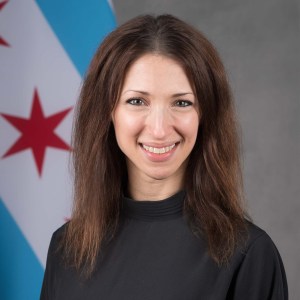The Seventh Circuit Court of Appeals handed down a very important decision on September 22 in the case of Joseph Lopez v. City of Chicago, and Chicago Police Detectives Jennifer Delafont, Daniel Jacons, and Hector Vergara, 01 C 1823. This decision clearly states without much ambiguity that the police, in this case the Chicago Police, must bring a suspect arrested without a warrant in front of a judge for a probable cause hearing within 48 hours of the arrest. (This blog is the first of five installments on this case and the subsequent class action case that was spurred on by the discovery in this case.)
Background: Joseph Lopez, 18, was arrested on July 19th, 2000 without a warrant for the murder of 12-year-old Miguel DeLaRosa. According to the trial court and appellate court decisions Lopez was identified by an eyewitness as being the shooter (the trial court and appellate court decisions differ on the number of eyewitnesses). There seems to be little doubt that at least one eyewitness existed, regardless of the reliability of the identification, and identified Lopez. At this time the Chicago Police seemed to have probable cause to arrest Lopez.
Subsequent to the arrest the Chicago Police held Lopez for four days as they “continued to investigate the crime”. The Chicago Police held Lopez in an interrogation room for most if not all of those four days. According to documents in the case Lopez was cuffed to the wall for the duration of his time in the interrogation room with the exception of the time he was being interrogated. He was deprived of sleep and communication with the outside world, as he was not allowed a phone call. He was also limited in his access to food and water.
As a result of his treatment at the hands of the Chicago Police Lopez confessed to the murder. When Lopez was arrested there was no evidence other then the eyewitness account that tied Lopez to the crime. After his four days locked away in an interrogation room the Chicago Police had uncovered no other evidence tying Lopez to the crime, with the exception of his coerced confession.
Soon after Lopez’s arrest and during his four days in the interrogation room the detectives continued to consult the Cook County Felony Review State’s Attorney on duty to see if she would approve charges against Lopez. Their requests were repeatedly turned down because of a lack of evidence. Their final request was approved regardless of the fact that the police had in four days only been able to produce a single eyewitness and a coerced confession. They police did not have a single piece of physical evidence tying Lopez to the crime or a motive.
After extracting Lopez’s confession charges were approved against Lopez and he was brought to Cook County Circuit Court for his arraignment. He was charged with first-degree murder and sent to Cook County Jail to await trial. According to the appellate ruling he was only in jail for a about two days when another individual was arrested and charged with the murder. Charges against Lopez were dropped and he was released from jail .
- Civil Trial: (Part 2 of 5) Coming next week we examine the federal civil suit filed by Lopez and the ruling that led to the appeal. We also will take a look at what was uncovered through the discovery process in the case
- Class Action: (Part 3 of 5)
- Appeal: (4 of 5)
- Patterns and Practices: (Part 5 of 5)



